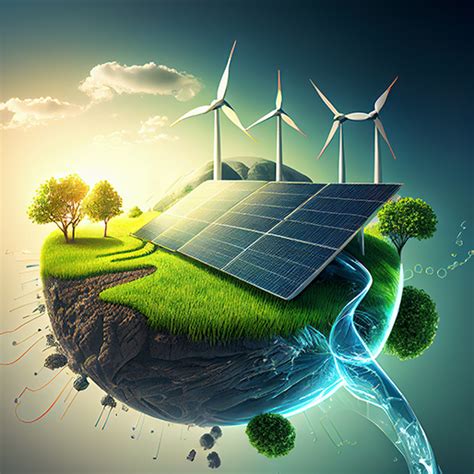In today's world, technology is an integral part of our daily lives. From the smartphones in our pockets to the computers on our desks, technology is always humming in the background, waiting to be utilized. But have you ever stopped to think about what fuels this technological marvel? What is the energy behind the digital world?
In this article, we will delve into the world of technology and explore the different types of energy that power our digital lives. We will discuss the importance of energy in the digital world, the different sources of energy used to power technology, and the impact of energy consumption on the environment.
Why Energy Matters in the Digital World
Energy is the lifeblood of the digital world. Without it, our devices would be nothing more than useless hunks of metal and plastic. Energy is what powers our computers, smartphones, and servers, allowing us to access the internet, communicate with each other, and store vast amounts of data.

But energy is not just important for powering our devices; it is also crucial for the environment. The production, transmission, and consumption of energy have a significant impact on the environment, contributing to greenhouse gas emissions, air pollution, and climate change.
The Sources of Energy in the Digital World
So, where does the energy that powers our digital lives come from? There are several sources of energy used to power technology, including:
- Fossil Fuels: Coal, natural gas, and oil are the most common sources of energy used to power technology. These fossil fuels are burned to produce electricity, which is then used to power our devices.
- Renewable Energy: Solar, wind, and hydroelectric power are becoming increasingly popular sources of energy for powering technology. These renewable energy sources are cleaner and more sustainable than fossil fuels.
- Nuclear Energy: Nuclear power plants generate electricity by harnessing the energy released from the splitting of atoms. This energy is then used to power our devices.

The Impact of Energy Consumption on the Environment
The production, transmission, and consumption of energy have a significant impact on the environment. The burning of fossil fuels releases greenhouse gases, such as carbon dioxide and methane, which contribute to climate change. The extraction and transportation of fossil fuels can also lead to environmental disasters, such as oil spills and gas leaks.

In addition to the environmental impact, energy consumption also has economic and social implications. The cost of energy production and consumption can be high, and the environmental impact of energy production can have negative effects on human health and well-being.
Reducing Energy Consumption in the Digital World
So, what can we do to reduce energy consumption in the digital world? Here are a few strategies:
- Use Energy-Efficient Devices: Look for devices that are energy-efficient and have a low power consumption.
- Turn Off Devices When Not in Use: Turning off devices when not in use can help reduce energy consumption.
- Use Renewable Energy Sources: Consider using renewable energy sources, such as solar or wind power, to power your devices.

Conclusion
In conclusion, energy is the lifeblood of the digital world. Without it, our devices would be nothing more than useless hunks of metal and plastic. However, the production, transmission, and consumption of energy have a significant impact on the environment, contributing to greenhouse gas emissions, air pollution, and climate change.

By understanding the importance of energy in the digital world and taking steps to reduce energy consumption, we can help mitigate the environmental impact of energy production and consumption.





What is the main source of energy used to power technology?
+Fossil fuels, such as coal, natural gas, and oil, are the main source of energy used to power technology.
What are the environmental impacts of energy consumption in the digital world?
+The environmental impacts of energy consumption in the digital world include greenhouse gas emissions, air pollution, and climate change.
How can we reduce energy consumption in the digital world?
+We can reduce energy consumption in the digital world by using energy-efficient devices, turning off devices when not in use, and using renewable energy sources.
